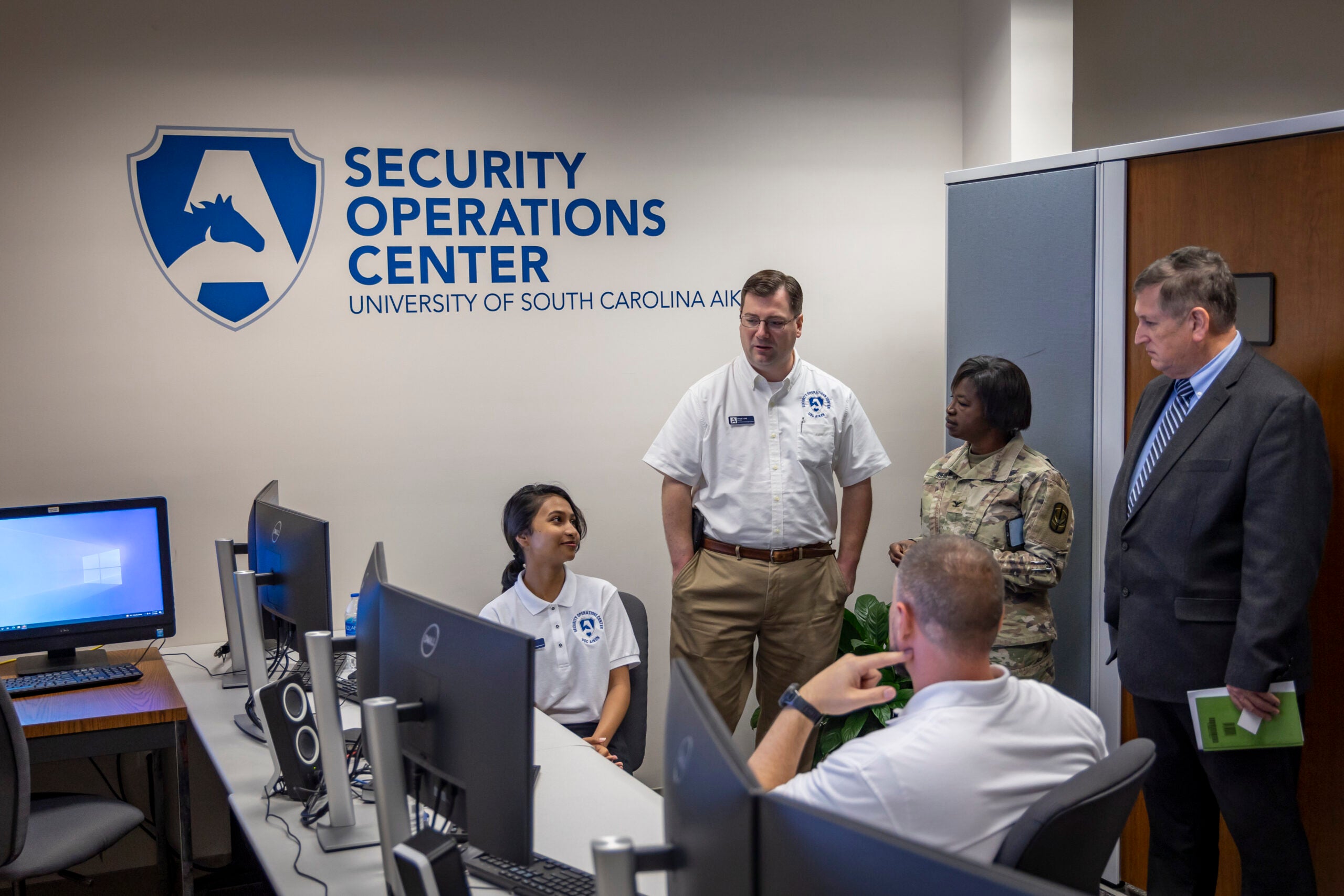The University of South Carolina Aiken (USCA) has recently announced its leading efforts to bolster cybersecurity across the Central Savannah River Area (CSRA) through the college’s innovative Regional Security Operations Center (RSOC).
Launched in March 2024, the RSOC is working with local governments, school districts, municipalities and critical infrastructure facilities to provide tailored cybersecurity services designed to address regional vulnerabilities, according to a press release from USCA.
As one of the first regional security operations centers in South Carolina, USCA’s RSOC offers needed support in areas including IT consultation, penetration testing, incident response and security awareness training.
The center’s specialized services also include email security compliance testing, event log monitoring and cybersecurity policy development.
The RSOC serves as a bridge between academic training and real-world cybersecurity needs, as USCA cybersecurity students gain hands-on experience as Tier 1 Security Operations Center analysts, equipping them with the skills needed to excel in future cybersecurity roles.
This unique learning opportunity also gives students a competitive edge upon graduation, with many expected to advance to higher-tier positions, according to a press release from USCA.
Chris Clark, director of technology services at USCA, emphasized the importance of this initiative, as partnerships with local organizations, the RSOC ensures 24/7 monitoring and rapid response services to mitigate cybersecurity threats.
“Our team can provide a tailored plan that addresses critical vulnerabilities for various facilities, cities, and towns in the region,” Clark said.
Additionally, the RSOC provides a valuable platform for students like Jacob Epps, a cybersecurity major who is already gaining real-world experience as a security analyst, according to a press release from USCA.
“We monitor alerts and analyze what actions we can take to mitigate potential threats,” Epps said, noting the proactive nature of the work involved in identifying suspicious emails or phishing attempts.
Ronit Pawar, a graduate student pursuing a master’s degree in computer science, is another example of a student benefiting from the RSOC’s hands-on approach.
Pawar follows in the footsteps of his sister, Isha Pawar, a 2022 USCA graduate and one of the original students involved in launching the center.
“The thing about the RSOC is that you get to learn new things all the time because so much is changing,” he said.
The center’s approach to cybersecurity is not only about technology but also about the interdisciplinary nature of the field, according to a press release from USCA.
“Cybersecurity intersects with human resources, finance, and legal services — it’s not just about computers, it’s also about the people who lead and manage these systems,” Clark said.
Aiming to protect both local institutions and the next generation of cybersecurity professionals, USCA’s RSOC continues to set the standard for cybersecurity training and service in South Carolina, according to a press release from USCA.
For more information about the RSOC and its services, contact Chris Clark at (803) 641-3680 or chrisac@usca.edu.










